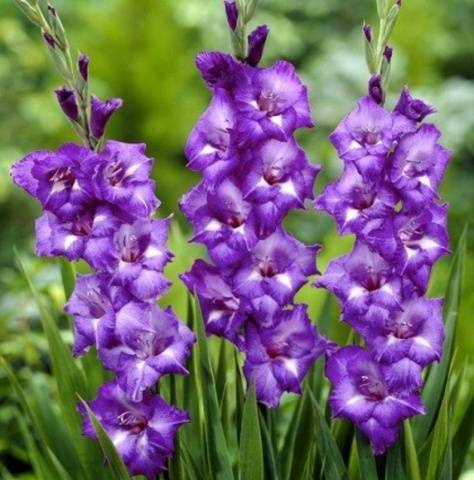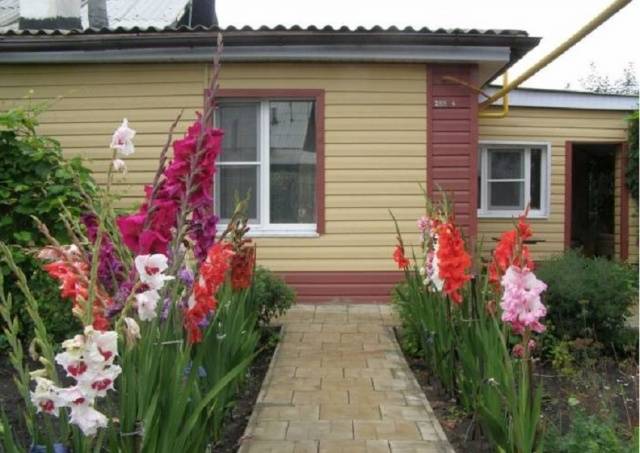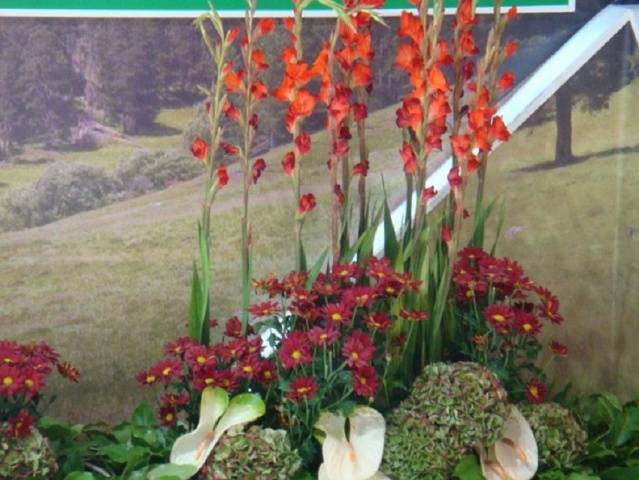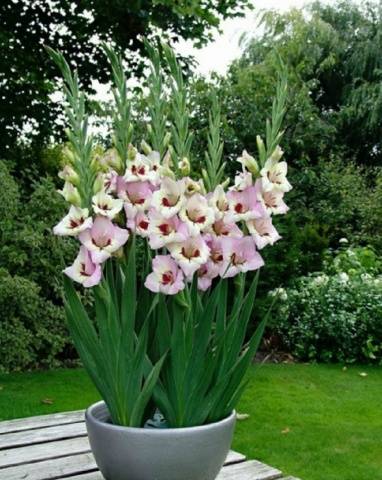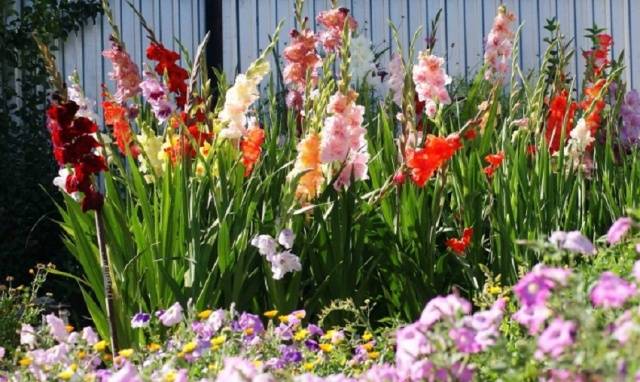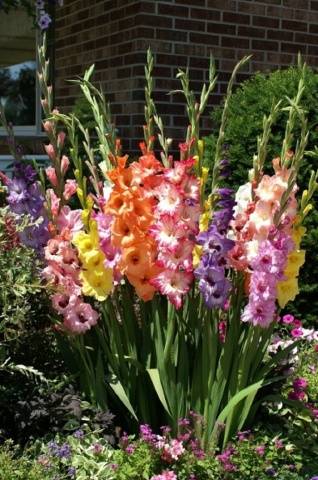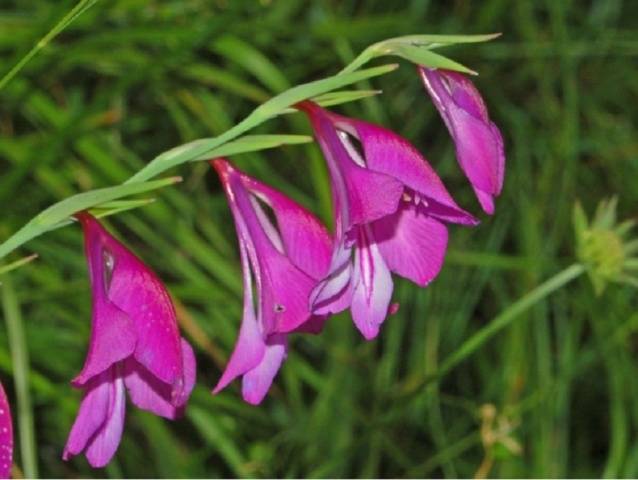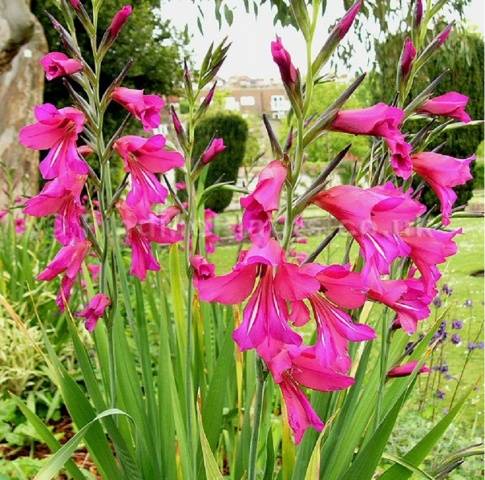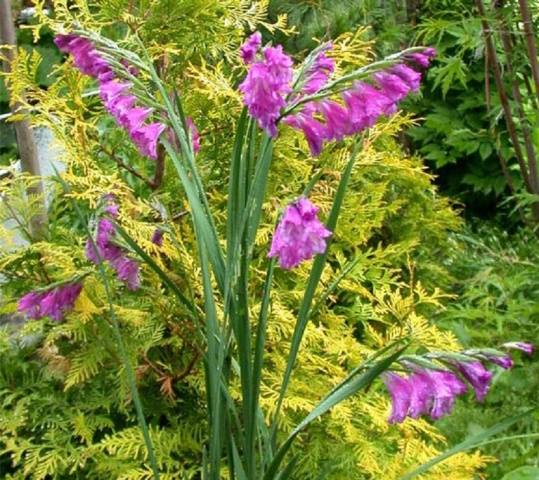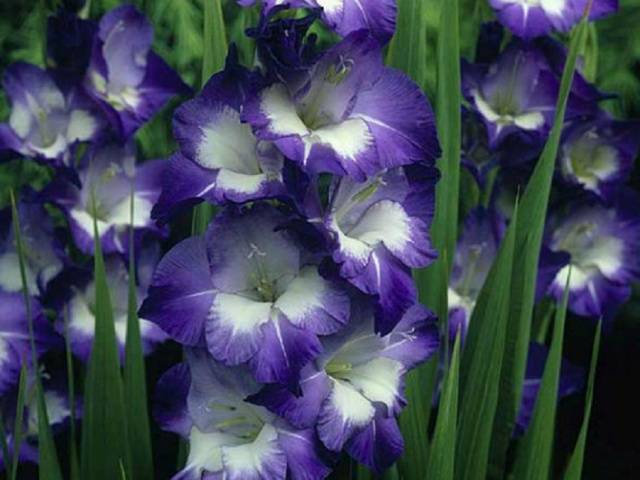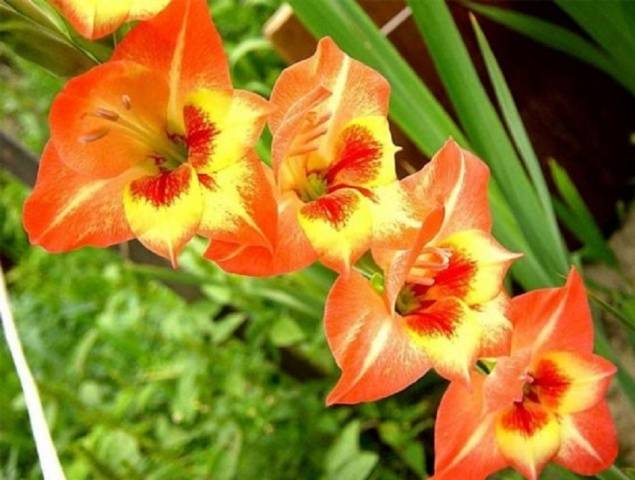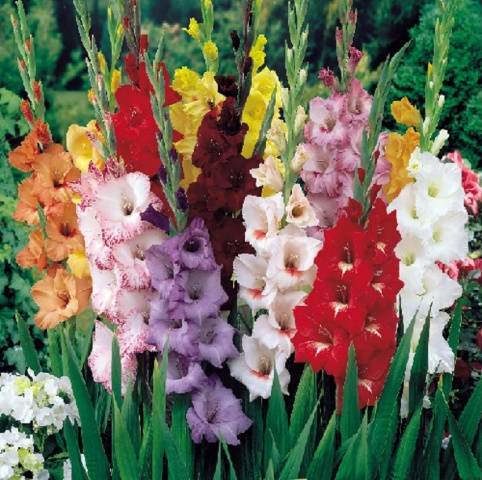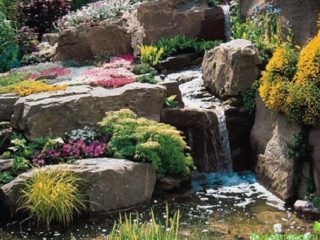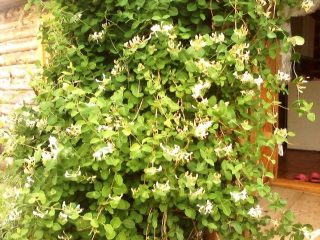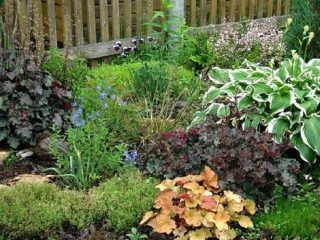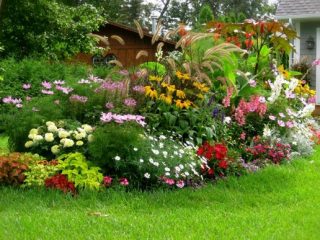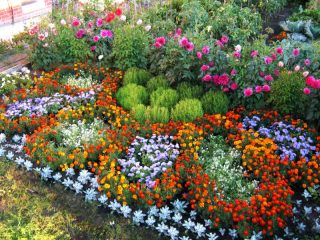Content
Among the plants that are used in the design of landscape design, there are many varieties. Some flowers serve as a frame for more expressive representatives. And some are just such representatives. Our article is about beautiful gladioli, which are rightfully considered royal flowers.
Number of modern varieties of gladioliused in landscape design, has more than 200 items. However, designers are not always happy to include this flower in their compositions. Its regality is both a decoration of the site, but also an obstacle to widespread use. The main nuance is commensurability. In single plantings, the gladiolus loses its majesty, and if the group turns out to be too large, the composition becomes chaotic. Therefore, the decoration of the site will be only a well-balanced proportion of the components.
What is the best way to apply gladiolus in landscaping? It is believed that gladioli are grown for cutting. Luxurious bouquets are present at all holidays and significant events. But in the landscape design of the site, you can make unique combinations using gladiolus (skewer).
The duet of gladioli with dahlias or phlox looks great in landscape design. When composing combinations, the color of the flowers and the size of the stems are taken into account.
What types to choose
Gladioli belong to the perennials of the iris family. It is a bulbous plant with an erect stem and luxurious flowers. They are located in a variety of ways:
- spiral;
- one-sided;
- spike-shaped;
- double-sided.
The shape of the petals can be simple or corrugated, and the flowering differs in the number of tones in one variety. Flower sizes can also be classified:
- small - up to 7 cm;
- small-flowered - up to 10 cm;
- mid-flowered - up to 12 cm;
- large-flowered - up to 15 cm;
- giant - over 17 cm.
The skewer propagates vegetatively and by seeds. In flower beds landscape design compositions the bulbs are planted. Some adult specimens reach a height of 170 cm, which allows the flower to take a dominant position in the project.
How best to place on the site
From experience, many designers know that gladioli should be classified as rather capricious colors. They require constant attention and competent care. But if at least once you try to create gladularia on the site (this is the name for the flower beds of gladioli), then in the future no difficulties will stop you. And these flowers will forever settle on your site. Choosing new varieties for planting is not at all difficult.
Gladioli for use in landscape design can be ordered from a photo. The creation of gladularia with the selection of varieties is quite time consuming, but the result is worth all the effort. The main condition that will have to be met is commensurability. Do not overdo it with the number and variety of shades, otherwise gladioli in landscape design will resemble an exhibition pavilion. But even a small number of colors will simply be lost.
Designers' recommendations for gladularia design:
- Consider the short-term flowering of the skewer. To make flower beds pleasing to the eye all season, it is necessary to frame gladioli in landscape design projects. Bulbous plants of different flowering periods are well combined. For example, for spring flowering, pick up original varieties of tulips, daffodils, hyacinths. In summer, let irises and peonies bloom in the place of gladularia, and then the time of gladioli will come. We will have to combine gladioli with different flowering periods in landscape design again. In this case, the majesty of the gladularia will continue until the autumn representatives - chrysanthemums, hydrangeas or asters.
- Try to keep the proportions of height in your landscape design. Do not plant tall flowers, such as dahlias, next to the skewer. Visually, they will shift attention, and the composition will seem mixed.
- For group planting, 10-15 plants of one variety are enough. Gladioli in landscaping work well in a group. Be sure to take into account the color combination of neighboring plants in order to withstand a harmonious transition of shades. The flashy variety of bright colors is tiresome.
- If the gladularia is in the foreground, try to make the background uniform in structure and color of the plants. Combinations with conifers, ornamental shrubs, evergreens are perfect.
- To make it easier to dig up the bulbs, place the plants next to annuals in the landscape design. This way, you can easily remove the bulb for storage without damaging the roots of neighboring flowers.
- Be sure to use undersized species in your landscaping. They do an excellent job of acting as lawn curbs and walkways. You can play with smooth transitions of shades or plant gladioli thickly with alternating contrasting colors. So that the gladiolus frame does not lose its attractiveness in the fall, add a decorative fence or designer props. They will help maintain the splendor of heavy inflorescences.
- Do not try to combine small-flowered and large-flowered varieties of gladioli next to each other. Larger inflorescences will divert attention from smaller ones, which will lose their attractiveness.
What other plants are combined with gladioli in landscaping? Of the high, attention should be paid to ageratums, zinnias, phloxes, asters, lavateria, dimorphoteku, undersized tobacco. If you still decide to plant perennials, then it is good to take oregano, solidago, rue or sage. Do not forget the host, undersized daylilies are a great option for decorating the area around the gazebo. It all depends on the style of your site landscape project.
When decorating a ceremonial mixborder in landscape design, a skewer is used in combination with stones, conifers, and undersized junipers. Gladioli are planted in containers and landscape rockeries. To veil the lower part of the trunk, small pebbles, gravel, and multi-colored shells are well suited. For small types of skewer in landscape design, the "second floor" view is often used. Taller plants or the same gladioli are planted, but the species are higher.
It should be borne in mind that you will have to change the landing site every year. If there is a lack of planting material, the bulb is cut so that each part has a bud.
The main representatives of a beautiful flower
Skewer (gladiolus) is divided into two varieties - hybrid and wild. In professional landscape design, hybrid gladioli are used. The second category is common in the wild. Although all decorative and hybrid varieties are bred by breeders on the basis of wild ones. Some types of lovely gladioli:
Swamp
Looks good when decorating rock gardens, near water bodies.Reaches a height of 60 cm, the color of the flowers is dark purple, the arrangement is one-sided, the number of flowers is 8 per stem. In nature, it is found in swampy meadows, from which it got its name.
Byzantine
It also has a one-sided arrangement of inflorescences and a stem height of 60 cm, but there are fewer flowers - up to 5 pieces. The color of the petals is a wonderful crimson shade with a white stripe in the middle. Summer flowering period. In nature, it grows on the edges.
Kochi
The plant is of medium height - up to 65 cm. Inflorescences are small, located on one side, the color is dark purple-violet. The number of flowers on the stem is 8 pieces. Occurs in mountainous areas in alpine meadows.
Sowing
Beautiful gladiolus for landscape design. Stem height 80 cm, two-sided loose inflorescence of amazing shades from pink to purple. There is a white stripe in the middle of the petal. The number of flowers on the stem reaches 10 pieces. Summer flowering period.
Tiled
It has a large number of flowers on the stem - up to 14 flowers in a one-sided arrangement. The inflorescence is dense, beautiful. Plant height 80 cm, found in dry meadows. It blooms in early summer.
Conclusion
Despite all the capriciousness and exactingness of gladioli, these flowers are always present in landscape design. No plant can replace their charm and sophisticated beauty.
Gladioli combine beautifully with other species, but they can create a unique composition by themselves.
Useful video:
